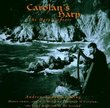| All Artists: Wolfgang Amadeus Mozart, Neville Marriner, Ileana Cotrubas, Robert Tear, John Shirley-Quirk, Helen Watt, Academy and Chorus of St Martin-in-the-Fields Title: Mozart: Requiem Mass K.626 Members Wishing: 0 Total Copies: 2 Label: Decca Release Date: 10/25/1990 Genre: Classical Styles: Opera & Classical Vocal, Historical Periods, Classical (c.1770-1830), Early Music Number of Discs: 1 SwapaCD Credits: 1 UPC: 028941774620 |
Search - Wolfgang Amadeus Mozart, Neville Marriner, Ileana Cotrubas :: Mozart: Requiem Mass K.626
 | Wolfgang Amadeus Mozart, Neville Marriner, Ileana Cotrubas Mozart: Requiem Mass K.626 Genre: Classical
![header=[] body=[This CD is available to be requested as disc only.]](/images/attributes/disc.png?v=430e6b0a) ![header=[] body=[This CD is available to be requested with the disc and back insert.]](/images/attributes/disc_back.png?v=430e6b0a) ![header=[] body=[This CD is available to be requested with the disc and front insert.]](/images/attributes/disc_front.png?v=430e6b0a) ![header=[] body=[This CD is available to be requested with the disc, front and back inserts.]](/images/attributes/disc_front_back.png?v=430e6b0a) |
Larger Image |
CD DetailsSimilarly Requested CDs
|
CD ReviewsNot perfect, but still the best. Enaitz Jar | Spain, Europe. | 08/24/2005 (4 out of 5 stars) "It's extremely difficult to choose between the large battery of Mozart's Requiem recordings available. Other works has it's unbeatable version. For example, the work done by Jeremy Summerly and the Oxford Camerata (Naxos label) on Faure's Requiem is undoubtely perfect and light years from any other recording. This doesn't happen here.
When I decided to find the perfect Mozart's Requiem I noticed that there were about 20 good versions of this work and the last weeks I've become half crazy to compare them all. I've recently finished this odyssey and this is what I have concluded: Marriner has two versions (first with Cotrubas and later with McNair as sopranos), of which the last one has the most favorable critics. In my opinion, the first one (reviewd here) is much better. The Marriner/Cotrubas recording is based upon the edition by Franz Beyer, which corrects obvious mistakes, rewrites some of the trombone parts and slightly extends the Sanctus (Hossana fugue) section, which are so short in Sussmayr's edition sounding abrupt and largely unconvincing. It was recorded in 1977 and perfectly remastered in 1987, so it's an ADD recording. The sound all over the entire record is full and clear so you can easily follow the lyrics. The orchestra does a good work and the chorus is fantastic, the vocal soloist are real good (but not espectacular). The full recording has an equilibrated and extremely high level of quality on all tracks, it's perfectly precise on the entries of the different orchestra and chorus sections, and each section sounds as a single person because of their always perfect intonation, without a miss in pitch. The Dies Irae is by far the best ever recorded, it sounds like if the whole sky was going to fall over your head, it's powerful as a thunder. The worst in this version is the Kyrie which is a bit slow (but not as slow as in Bohm's version). The Marriner/McNair version is obscure and bassy, full of echoes, you can't pay attention to the chorus lyrics because they are almost unintelligible. The full recording is some kind mediocre except for the Kyrie which at least is played at the correct tempo. I'm not saying that Marriner/McNair is a bad version, is a correct version, but, when fighting against the masters, to be correct it's not enough to be the best. Better than Marriner/McNair is the Gardiner's version, which I think is the second best after Marriner/Cotrubas. It has the correct tempos all over the Requiem and the sound is clear, but some times could be a bit weak and the vocals in the Tuba Mirum sounds like if Willard White (the bass-baritone soloist) was singing from the bathroom of the concert hall. Sir Georg Solti recorded a live one which is very good, but it was recorded as a real funeral ceremony and there is a priest speaking "solo" from time to time which breaks the action and turns down the full experience like a "coitus interruptus". Karajan recorded three versions, of which the only one that worths a listen is the second one, recorded with the Berliner Philarmoniker in 1975. In this version the orchestra takes the first place in importance and leads the chorus. If you listen to the Kyrie you'll hear that the fugue is conducted by a violin which sounds amazingly as the leader of the chorus. The rest of the work is real good but, again, the sound is far from perfection because of the echoes in the recording hall. Also, this is a some kind unorthodox performance because of Karajan's romantic approach to the score. Bernstein's version is similar to the Karajan's one, but without the orchestra leadership shown in Karajan's. The one conducted by Karl Bohm is a very powerful performance, but it's such incredibly slow on tempo that ruins the full score. In Bohm's recording the confutatis sounds like an adagio and the Kyrie is the most static fugue ever seen (or listened). Harnoncourt has recorded a horrible version, the worse I've ever listened, the only acceptable in his recording is the engineering sound quality. Summing up, the Marriner/Cotrubas version is not perfect (most because of the Kyrie's slow tempo), but it's the best available, not being too far in quality from Gardiner, Solti or Karajan's (Berliner Philarmoniker, 1975) recordings." |

 Track Listings (14) - Disc #1
Track Listings (14) - Disc #1








